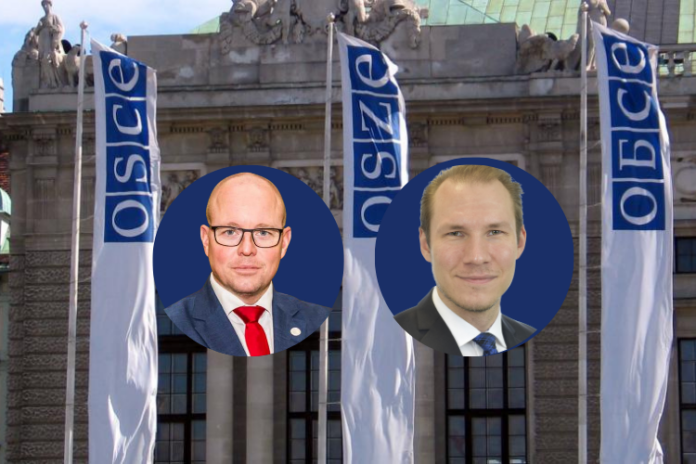Moldova’s recent elections and referendum have underscored the country’s steadfast commitment to a European path. Despite extensive Russian interference – ranging from vote-buying schemes and cyberattacks to bomb threats – pro-European candidate Maia Sandu emerged victorious. Her clear win highlights consistent support from both domestic voters and the diaspora. Yet, a critical challenge looms: A less engaged diaspora could jeopardize the country’s path toward the EU,ipn reports.
The recent presidential election secured Maia Sandu a second and final term and the referendum resulted in added a commitment to EU membership to the constitution, solidifying the nation’s European aspirations despite mounting external and internal pressures. However, the narrower-than-expected margin in the referendum reveals the underlying complexities.
Russian interference reached unprecedented levels during the elections. Authorities exposed a vote-buying operation involving roughly 10% of voters, with at least 138,000 people receiving funds through a sanctioned Russian bank’s app in exchange for their votes. This was compounded by bomb threats targeting diaspora polling stations and cyberattacks aimed at undermining their participation. These tactics reflect Russia’s determination to disrupt Moldova’s democratic process.
FOR THE MOST IMPORTANT NEWS, FOLLOW US ON TWITTER!
Nevertheless, Moldovans stood firm. Despite an increasingly difficult economic situation, voters reaffirmed their backing for Sandu and a European future. However, with parliamentary elections on the horizon next year, a new and significant challenge threatens this trajectory.
Moldova’s upcoming parliamentary election is critical for sustaining its pro-European agenda. While the presidential election reaffirmed popular support for European integration, the parliamentary race will determine the legislative capacity to implement necessary reforms. A key vulnerability lies in the potential disengagement of the Moldovan diaspora – a cornerstone of Sandu’s electoral base and the broader pro-European movement.
In the last election, over 270,000 diaspora voters, primarily living in EU countries, played a pivotal role in securing Sandu’s victory. For these voters, European integration represents hope for better governance, economic opportunity, and a strengthened international position. However, diaspora turnout has historically been lower in parliamentary elections, which are often perceived as less impactful. This disinterest could weaken the pro-European bloc’s influence in parliament, where key policies are debated and alliances formed.
Meanwhile, pro-Russian forces, supported by Moscow’s resources and networks, see this as a strategic opening. They have already employed vote-buying, propaganda campaigns, and cyberattacks to sway Moldovan politics. In a parliamentary election where margins are tighter, even small shifts in voter turnout could shift the balance of power.
A diminished diaspora presence in the vote would amplify the influence of domestic voters, where pro-Russian sentiment remains significant. Figures like Alexandr Stoianoglo promote “multivector” policies, presenting themselves as neutral but risking dilution of Moldova’s pro-European alignment and inviting further Russian interference.
The stakes in the parliamentary election extend beyond Moldova’s borders. The results will decide whether the country can transform its European aspirations into tangible reforms, including justice system improvements, economic modernization, and protections against Russian hybrid threats. A pro-European majority is essential; without it, Moldova faces legislative deadlock or even a reversal of its European progress.
Geopolitically, Moldova’s position as a pro-European democracy near Russia makes it a frontline state in the broader East-West struggle. A weakened pro-European government would embolden Moscow’s efforts to destabilize the region and exploit vulnerabilities along Europe’s periphery.
To prevent this, pro-European forces must prioritize mobilizing the diaspora and boosting voter participation in the parliamentary elections. Targeted outreach campaigns should emphasize the election’s significance and the legislature’s role in driving reform. Diaspora voters must understand that their engagement is critical, even if parliamentary contests seem less prominent than presidential ones.
To facilitate the engagement of the diaspora countries hosting polling stations should ensure conditions that make voting as accessible as possible and provide necessary security measures to prevent disruptions, such as addressing potential bomb threats at polling locations.
If the postal voting system is to continue, postal services must work closely with embassies and voters, prioritizing timely delivery of ballots. Each vote delivered on time contributes to shaping Moldova’s European path. Experiences in Nordic countries have demonstrated that such an approach is feasible and effective.
Transparent election processes, strengthened cybersecurity, and robust international oversight are essential to safeguarding Moldova’s democracy.
The parliamentary election represents a defining moment for Moldova’s democratic and European aspirations. If diaspora disengagement combines with aggressive pro-Russian tactics, the country’s hard-earned progress could unravel. Moldova’s future depends on vigilance, proactive engagement, and a collective commitment to reform.
BJÖRN SÖDER (SD), Member of the Swedish Parliament and Head of the Swedish delegation to the OSCE PA
MARKUS WIECHEL (SD), Member of the Swedish Parliament, Head of the Swedish delegation to the PACE and member of the Swedish delegation to the OSCE PA


